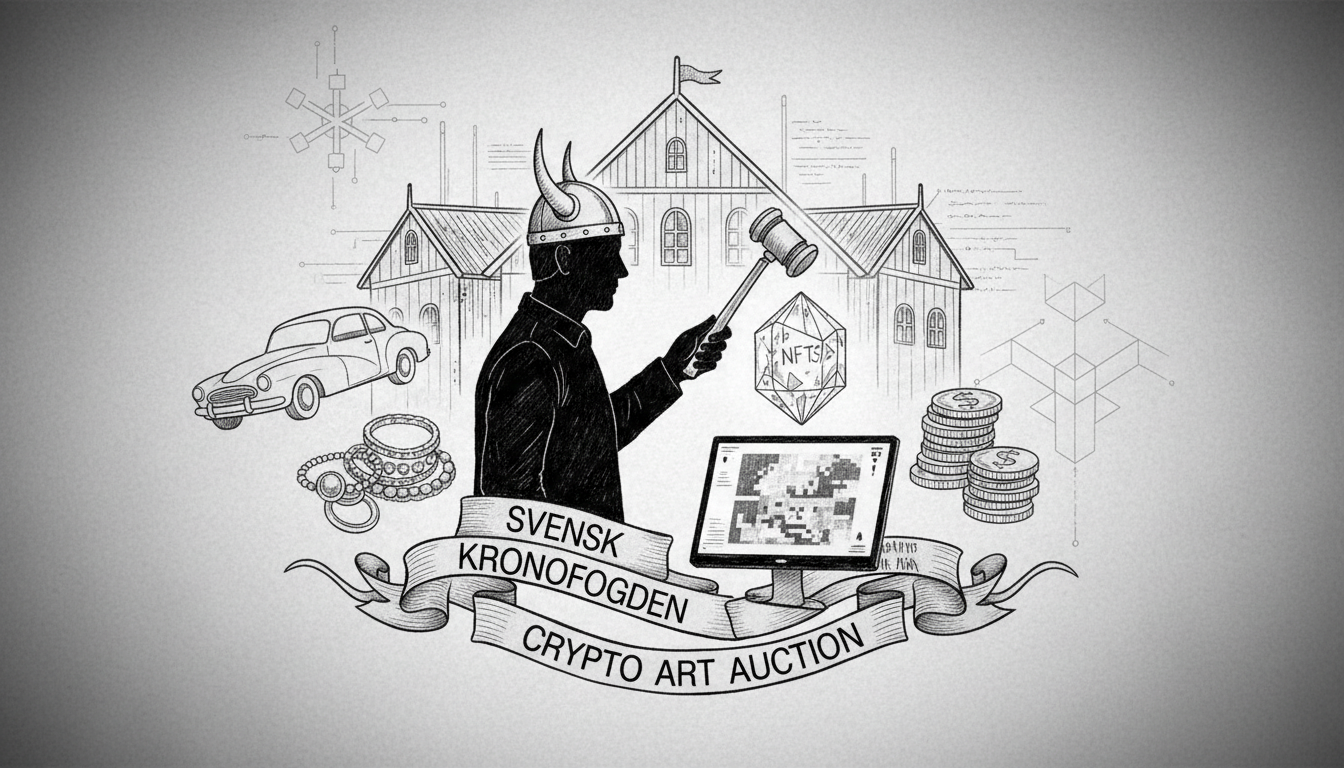The Swedish Enforcement Authority has seized and auctioned NFTs for the first time. The agency placed digital artworks for sale with valuations reaching millions. This marks a significant expansion of their asset recovery efforts.
Katarina Erman, a department head at the agency, confirmed the development. She stated this approach represents completely new territory for their operations. The authority made the announcement through their official LinkedIn channel.
The digital artworks now appear alongside more traditional seized items. Auction listings include cars, jewelry, and power tools. The addition of crypto art demonstrates how enforcement agencies must adapt to new asset classes.
This move reflects Sweden's position at the forefront of digital innovation. The country has embraced cryptocurrency and blockchain technology more than many European neighbors. Swedish authorities now face the practical challenge of handling digital assets during debt collection.
The Enforcement Authority, known as Kronofogden, handles debt recovery and enforcement matters. Their traditional role involves seizing physical property from debtors who fail to pay. Expanding into digital assets represents a necessary evolution of their capabilities.
NFTs present unique challenges for enforcement agencies. Unlike physical assets, they exist only on blockchain networks. Their value depends entirely on market perception and digital ownership verification.
Sweden's legal framework has proven adaptable to technological change. The country maintains strong consumer protections while accommodating innovation. This balance allows authorities to pursue digital assets while maintaining proper oversight.
International readers should understand this development's broader implications. As digital assets become more common, enforcement agencies worldwide will face similar challenges. Sweden's approach may serve as a model for other countries developing their digital asset policies.
The auction results will provide valuable data about NFT market stability. They will also test public willingness to purchase seized digital assets. This could influence how other European enforcement agencies approach cryptocurrency seizures.
What does this mean for debtors holding digital assets? They can no longer consider NFTs safe from enforcement actions. Swedish authorities have demonstrated they can and will pursue these assets when collecting debts.
The agency's move signals that no asset class remains beyond reach. As technology evolves, so must enforcement methods. This development represents just the beginning of digital asset enforcement in Sweden and beyond.

